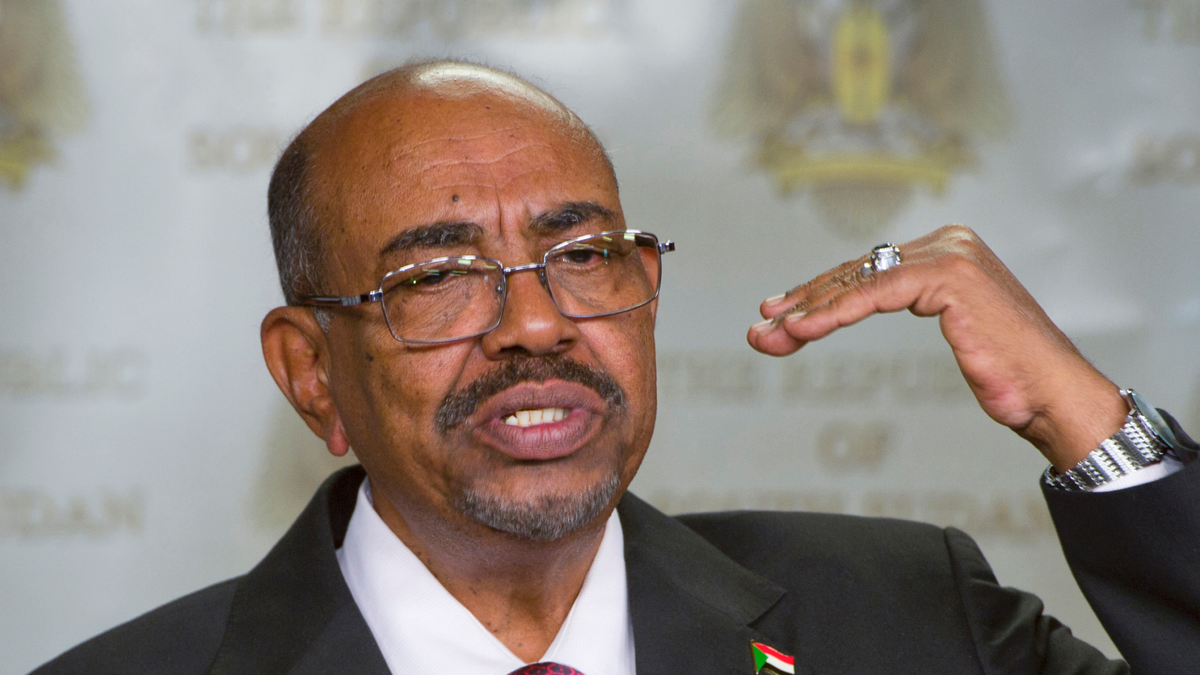
CAIRO – The United States on Tuesday faced calls to maintain pressure on Sudan's government, the day before Washington is expected to announce the permanent lifting of sanctions dating back to the 1990s.
Rights advocates and opposition groups say the move will strengthen President Omar al-Bashir, who is wanted by the International Criminal Court for genocide charges linked to the Darfur conflict, and do much to bring his government back into the international fold after decades of isolation, war and abuses.
Sudan has been under U.S. financial sanctions since the 1990s, when it was briefly home to Osama Bin Laden and accused of sponsoring terrorism. The Obama administration temporarily lifted the sanctions in January, citing improved counterterrorism efforts and progress toward ending the country's many internal conflicts. The move becomes permanent on July 12 unless the State Department revokes it.
The U.S. has worked to isolate Sudan since the military coup that brought al-Bashir to power in 1989, and other sanctions targeting him and some of his inner circle will remain in place regardless of the upcoming decision.
Sudanese Foreign Minister Ibrahim Ghandour said Tuesday he expected the easing of the sanctions to be made permanent. "The lifting of the sanctions is a right of Sudan, which has fulfilled all its commitments," he said in comments carried by newspapers.
Human Rights Watch has said that the six-month timeframe was not enough to measure any purported progress.
"The human rights situation has not improved," the New York-based group said in May. "Sudanese Armed Forces and aligned forces, notably the newly created Rapid Support Forces, have continued to attack civilians in Darfur, Southern Kordofan, and Blue Nile with utter impunity."
Khaled Omer, vice chairman of the opposition Sudanese Congress Party, said permanently lifting the sanctions would do nothing to help the Sudanese people.
"The few people who control the country will line their pockets and use it to finance their priorities: oppression, accumulating more power and funding the security services who do their bidding."
U.N. experts say the government has largely succeeded in putting down the revolt in Darfur, with fighting in the 13-year conflict now limited to the mountains, a claim disputed by activists and human rights advocates.
The rebel Justice and Equality Movement now operates mostly in neighboring South Sudan, the experts said in a report to the U.N. Security Council last January, while one faction of the Sudanese Liberation Army operates largely across the border in Libya and another just holds pockets of territory in the Jebel Marra area.
The Sudanese government heavily restricts access to all these areas.
"We can't give up hope, but if the sanctions are lifted it is bad for the Sudanese people — it is an unreciprocated award to the government and will boost their position," said Traio Ali, the nomme de guerre of an exiled SLA leader. "Civilians are still being killed, and if sanctions are lifted this will worsen," he said. "We will continue to fight for our rights regardless of what happens."
Activists say that intercommunal violence, militia activity, and banditry continue unabated in Darfur.
Conflicts in other areas — Blue Nile state and South Kordofan — pit the government against rebels from the SPLA-N, who were left on the northern side of the border after South Sudan became independent in July 2011.
"The Sudanese government has not stopped its atrocities against people in Sudanese war zones," said activist Osman Naway from the Nuba Mountains area of South Kordofan, who urged the U.S. to postpone its decision until independent experts evaluate the situation on the ground.
"We continue to document major violations and constant attacks on civilian areas by Sudanese militias, and the Sudanese government also continues to prevent humanitarian access to almost a half million people from Nuba," he said.
The E.U. placed an arms embargo on Sudan in 1994, but a report by Conflict Armament Research says the government has expanded efforts to circumvent it and may have violated U.N. sanctions on arms sales with Iran.
Paul Gabriel, an analyst at London-based consultancy Control Risks, expects the sanctions to be lifted, spurring an increase in investment from the Gulf.
"Western companies will be more cautious at first, given the level of uncertainty that remains in Sudan," he said. "But investments in oil and gas, an underdeveloped financial sector and all the business support that goes with it are likely to see an increase."
___
Follow Brian Rohan on Twitter at: www.twitter.com/brian_rohan
